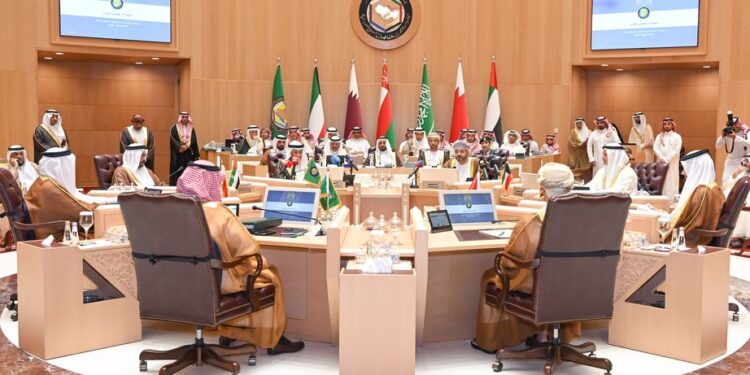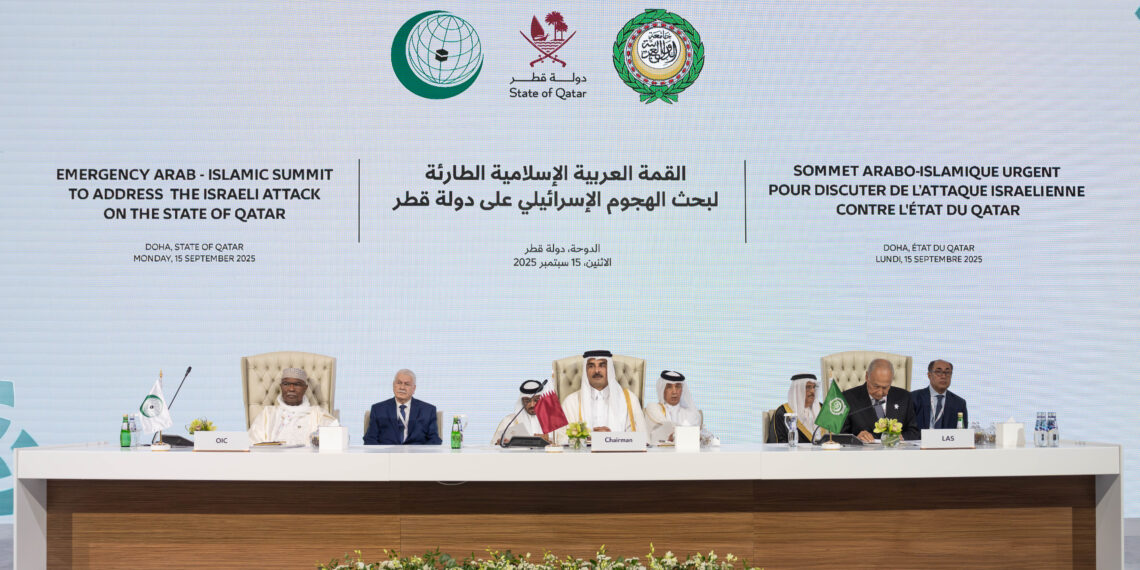The Gulf Cooperation Council (GCC) affirmed its support for the outcomes of the extraordinary Arab “Palestine Summit” held in Egypt, which adopted an early recovery plan, reconstruction, and development for Gaza, as well as the deployment of international protection and peacekeeping forces under a UN Security Council resolution in the Palestinian territories of Gaza and the West Bank.
This statement was made by Jasem Al-Budaiwi, the GCC Secretary-General, during the 163rd meeting of GCC foreign ministers and joint ministerial meetings with their counterparts from Egypt, Syria, Morocco, and Jordan, hosted in Mecca.
Al-Budaiwi stated that these meetings come amidst complex regional and international circumstances, foremost among them the developments in the Palestinian issue. He emphasized the categorical rejection of the dangerous escalation and ongoing violations faced by the Palestinian people, which pose a blatant threat to their identity and rights. He called on the international community to fulfill its responsibilities to halt these practices that undermine security and stability.
He welcomed the Cairo Summit’s decision to hold an international conference for recovery and reconstruction in Gaza, in cooperation with the State of Palestine and the United Nations, urging the international community to participate to expedite the rehabilitation and rebuilding of the sector following the destruction caused by Israeli aggression. Al-Budaiwi stressed that Gaza’s future must be within the framework of a unified Palestinian state and the implementation of the two-state solution, while rejecting any attempts to burden Egypt with consequences arising from inhumane and unjust calls for the displacement of the Palestinian people.
For his part, Kuwaiti Foreign Minister Abdullah Al-Yahya, the current chair of the GCC Ministerial Council, stated that the meetings are being held amidst accelerating challenges and regional and international developments that require enhanced consultation, coordination, and joint action to address these challenges. This would contribute to consolidating security and stability, advancing sustainable development pathways, and achieving the shared interests of our countries and peoples.
Al-Yahya reiterated the firm and unwavering stance against any attempts to displace the Palestinian people from their lands, describing the outcomes of the Cairo Summit to discuss developments as “important.” These outcomes reflected unity and commitment to collective action to address regional and international challenges, reaffirming Arab constants in supporting security and stability, enhancing Arab integration, and advancing development pathways to meet the aspirations of our peoples for a brighter future.
In turn, Egyptian Foreign Minister Badr Abdelatty emphasized that the meeting comes at a critical time on both regional and international levels, given the numerous changes and unprecedented challenges facing the region. This necessitates intensified consultation and coordination between Egypt and the GCC, pushing for further activation of cooperation mechanisms to collectively address these unprecedented challenges and threats and achieve security and stability in the region.
He noted that the Cairo Summit demonstrated consensus and solidarity in adhering to Arab constants regarding Palestine as the central issue of the Arab world. “This represents a new opportunity to reaffirm our positions, which are based on supporting the legitimate rights of the Palestinian people and countering any ideas aimed at liquidating their cause through displacement or removal from their land,” he added. He stressed the need for continued coordination and cooperation to work on rebuilding Gaza while ensuring Palestinians remain on their land, enabling the Gaza Sector Management Committee to resume vital services for Palestinians, paving the way for the Palestinian Authority to return to Gaza and assume security, development, and law enforcement responsibilities.







